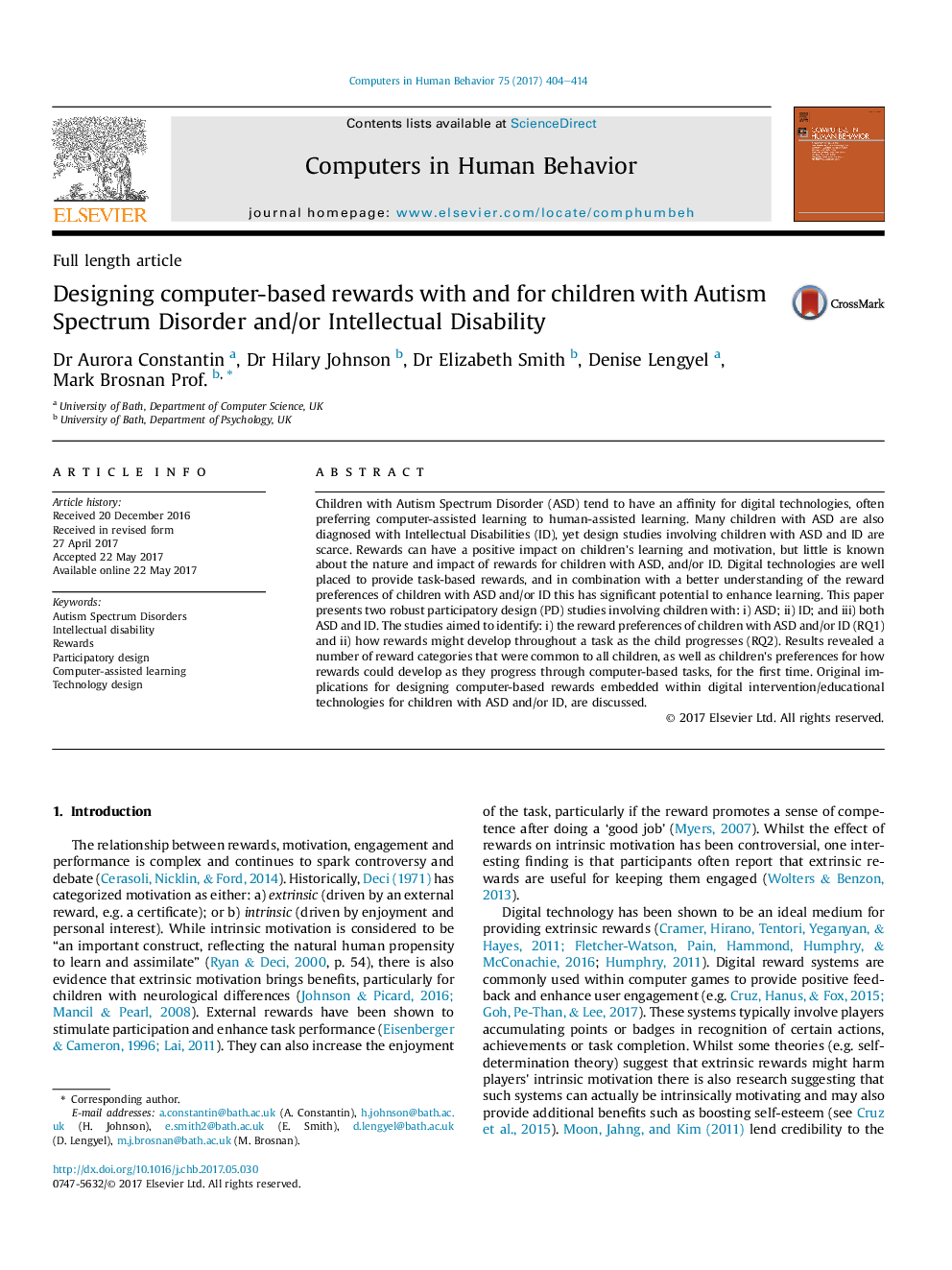| Article ID | Journal | Published Year | Pages | File Type |
|---|---|---|---|---|
| 4937512 | Computers in Human Behavior | 2017 | 11 Pages |
Abstract
Children with Autism Spectrum Disorder (ASD) tend to have an affinity for digital technologies, often preferring computer-assisted learning to human-assisted learning. Many children with ASD are also diagnosed with Intellectual Disabilities (ID), yet design studies involving children with ASD and ID are scarce. Rewards can have a positive impact on children's learning and motivation, but little is known about the nature and impact of rewards for children with ASD, and/or ID. Digital technologies are well placed to provide task-based rewards, and in combination with a better understanding of the reward preferences of children with ASD and/or ID this has significant potential to enhance learning. This paper presents two robust participatory design (PD) studies involving children with: i) ASD; ii) ID; and iii) both ASD and ID. The studies aimed to identify: i) the reward preferences of children with ASD and/or ID (RQ1) and ii) how rewards might develop throughout a task as the child progresses (RQ2). Results revealed a number of reward categories that were common to all children, as well as children's preferences for how rewards could develop as they progress through computer-based tasks, for the first time. Original implications for designing computer-based rewards embedded within digital intervention/educational technologies for children with ASD and/or ID, are discussed.
Keywords
Related Topics
Physical Sciences and Engineering
Computer Science
Computer Science Applications
Authors
Dr Constantin, Dr Johnson, Dr Smith, Denise Lengyel, Mark (Prof.),
